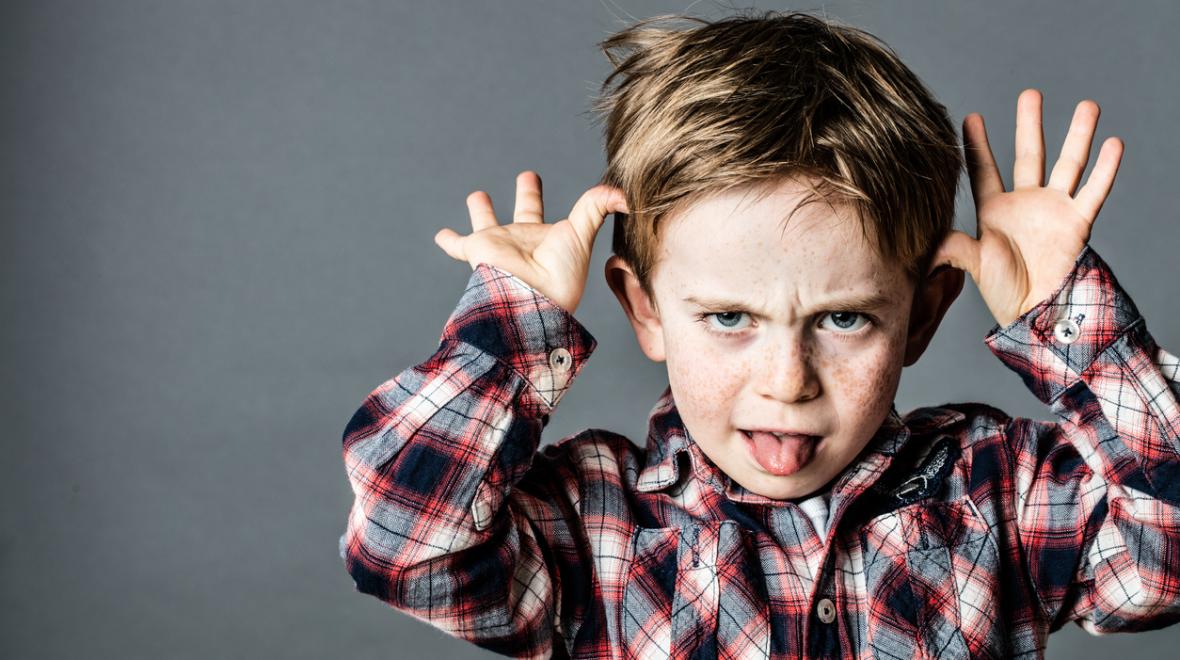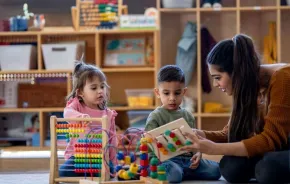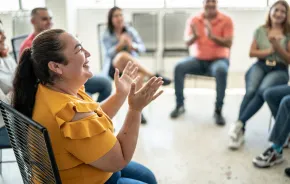
A few years ago, I was at a social gathering where a mom announced, eyeing her baby on her hip, “He's such a little asshole!” When everyone around her winced, she doubled down. “He is!” she exclaimed, and then she began listing the (totally normal) baby stuff he did that substantiated her claim. Everyone started to relax when they realized she wasn't being terrible; this was a Midge Maisel moment — a bit of edgy party humor to illustrate the tension of loving her baby and sometimes actively disliking the tiring process of parenting. Certainly, it was something all of the parents in the room could relate to, including me.
I laughed, albeit uncomfortably. Calling a kid names, whether they can understand them or not, unsettles me. Since that day, I’ve noticed an increasing trend of disparaging kids in general for shock value and humor. Headlines that read things like “Kids are assholes” or “Your children are disgusting” are becoming more common, and I often think about my own sensitive nature and my kids who experience varying degrees of sensitivity when I read them.
While those titles are usually nothing more than click-bait, I still wonder what harm might come from airing such statements on the internet and other public spaces in such a mean-spirited way.
It’s a strange double standard society tolerates blithely when it comes to saying rude things about kids. When I see kids contextualized as crappy humans, I mentally switch out the word “kids” with another vulnerable community that requires caregiving and respect, such as “the elderly.” Of course, most people would consider belittling statements expressed about older people to be highly offensive and rightly so. So, why don’t we feel the same way about casual slurs aimed at children?
While most people who rib kids aren’t trying to bully them, the behavior could still have an impact on kids’ dignity.
Some people would say that it’s different with small children: Kids typically don’t understand our attempts at humor made at their expense, and besides, it’s “just a joke.” But Susan Gelman, a psychologist at the University of Michigan who studies the relationship between language and thought, has qualms with writing off mean comments as benign. As is often the case, Gelman says, “The argument that something is ‘just a joke’ can be misused to justify bullying or cruelty.” And while most people who rib kids aren’t trying to bully them, the behavior could still have an impact on kids’ dignity.
Donna Hicks, author of “Leading With Dignity: How to Create a Culture That Brings Out the Best in People,” defines dignity very simply as “our inherent value and worth.” And, notably, dignity is not something that’s earned, like a badge, for attaining a certain age or cognition level. In a YouTube video discussing the meaning of dignity, Hicks explains that dignity is something that everyone is born with and that dignity is “vulnerable to being harmed and injured.”
Kids, because of their dependency, are especially vulnerable to having their dignity wounded. And while this trend isn’t aimed at children, directly, Gelman is concerned about what disparaging messages could convey to kids who might overhear or read them. “Kids take words very seriously, and young kids aren’t very good at detecting sarcasm or irony,” says Gelman.
The good news, according to Emily King, a psychologist who specializes in young children and adolescents and authors the Parenting on Your Own Path blog, is that because today’s youth will never have known a time without the internet, “By the time they are old enough to read such articles, hopefully, they have learned to consider the source of such comments or titles and dismiss them.”
Still, King finds the disparaging-for-humor-value trend worrisome because using humor to minimize kids’ challenging behavior reinforces the idea that children act a certain way just to be difficult. And that’s one of the potential downstream consequences of talking about kids in negative ways that Gelman notes, too.
“People quickly pick up on associations between words that go together in speech,” says Gelman. To give a trivial example, Gelman notes how the word “bread” might also conjure the word “butter,” because “bread and butter” is a familiar phrase. “We call this ‘priming’ — the word ‘bread’ primes the word ‘butter.’ So, if you often talk about kids in negative ways, those negative ideas might likewise get associated with kids, unconsciously.”
Most people and publications that use disparaging humor don’t have ill intent. In fact, the motivation is often of a positive nature — to empathize and connect with other parents who may also be struggling in the parenting trenches. Who hasn’t been pushed to the very edge by normal (yet exasperating) kid behavior? It’s pretty natural to want to connect with other parents and feel slightly less isolated in those experiences. The surprise and relief of hearing someone else say out loud and in front of everyone what most parents have surely thought on some level at some point is the allure of that brand of humor. But, does publicly bantering about kids in disparaging ways go too far?
The mental health professionals I spoke to agree that it does. Not only is it done at the expense of kids’ dignity, but it also runs the risk of normalizing what would, in any other context, be considered prejudiced categorizing or stereotyping. “Behaviors that might at one point seem rude or shocking can become ‘normalized’ if you see or hear them enough,” says Gelman. “There could be something like that going on with ‘coarsening’ how we talk about kids.”
Constant care-giving is hard; maddening, sometimes. So, it’s reasonable to expect that parents will periodically express their frustration — sometimes involuntarily, other times by confiding in a partner or trusted friend. But, as we balance our needs to connect with other parents and blow off a little steam, we should work hard to remember that our kids aren’t props for edgy stories or fodder for click-bait. After all, says Gelman, “Kids are already powerless and don’t get much respect. Do we really need even more ways to disrespect them?”











